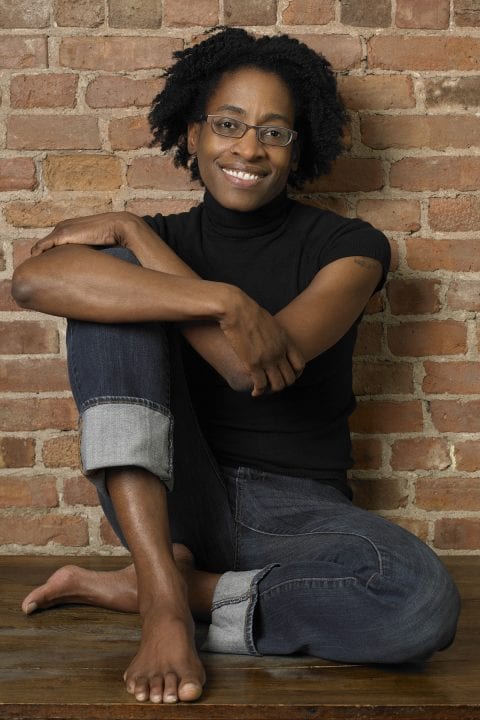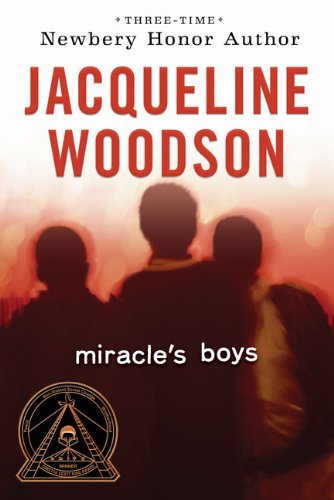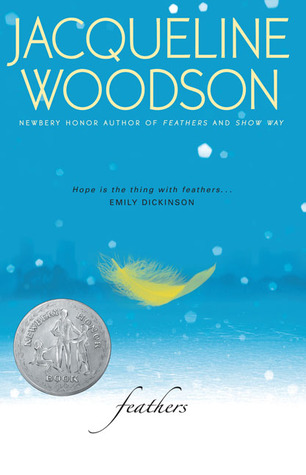
Required Reading: Jacqueline Woodson
April 11, 2016
We’re excited to announce the launch of our Required Reading series, where we’ll be sharing a list of three essential works for each of SAL’s visiting writers. First up: Jacqueline Woodson, children’s author extraordinaire.
Ursula K. Le Guin said of stories: “The reader, reading it, makes it live: a live thing, a story.” If you agree with that premise, you may also agree that Jacqueline Woodson—author of nearly 30 children’s books, each populated with often “invisible” characters—has helped thousands of young readers to see their lives living in print, and to live new stories in turn.
Celebrated for her sparse and lyrical prose, Woodson is a decorated author. She’s the winner of the Coretta Scott King Award and multiple Newbery Medals. Most recently, she received a National Book Award for the memoir-poems of Brown Girl Dreaming, the subject of her upcoming SAL talk.
As an African-American woman and open lesbian, Woodson’s writing explores how multiple oppressions interlock. “[I wanted] to write about communities that were familiar to me,” Woodson explains. “Things that I felt like were missing in a lot of the books that I read as a child.” Perhaps even more ambitiously, she’s concerned with how the young individual emerges from a tangle of siblings, parents, adults, and friends within such a pressurized atmosphere.
Here are three books by Woodson you absolutely must read:

Brown Girl Dreaming (2014)
Woodson began writing these poems after the death of her mother, “as a means of getting answers to questions I had not had a chance to ask.” Demanding a thematic comparison to beloved poet Nikki Giovanni, Brown Girl Dreaming deals with Woodson’s childhood travels between South Carolina and New York in the 1960s and ’70s, the remnants of Jim Crow, and the growing Civil Rights movement.
By the end of writing the book, Woodson realized her questions “had always been getting answered. All of my life, my family has been giving me the gifts of books and story and experiences […] The book feels like an ode to family—to the people who showed me how the ordinary is quite extraordinary and that our history is what buoys us and keeps us moving forward.”
Rippling through Woodson’s spare verses are immersive details of everyday minutiae. Sometimes, it can feel as though readers are standing outside her memories, pressing their ears to a door:
We take our food out to her stoop just as the grown-ups
start dancing merengue, the women lifting their long dresses
to show off their fast-moving feet,
the men clapping and yelling,
Baila! Baila! until the living room floor disappears.
Also remarkable are the rhythms that punctuate Woodson’s lines, capturing her young voice in a way that feels casual, effortless, but introduces unexpected momentum. Take “Reading,” for example:
I am not my sister.
Words from the books curl around each other
make little sense
until
I read them again
and again, the story
settling into memory. Too slow
the teacher says.
Read faster.
Too babyish, the teacher says.
Read older.
But I don’t want to read faster or older or
any way else that might
make the story disappear too quickly
from where it’s settling
inside my brain,
slowly becoming
a part of me.
A story I will remember
long after I’ve read it for the second,
third, tenth,
hundredth time.

Miracle’s Boys (2000)
“To create the universal, you must pay very close attention to the specific,” Lorraine Hansberry said of writing Raisin in the Sun. In Miracle’s Boys, one of the book’s greatest pleasures is the specificity of its three brothers and how keenly Woodson inhabits the adolescent psyche.
In this smart, funny narrative, Lafayette, whose mother has recently died, is worried that he will be separated from his two older brothers: high-school-graduate Ty’ree, who gave up a scholarship to MIT to care for him; and Charlie, the rebellious middle child, who, after spending more than two years in juvenile detention, has returned home tough:
“Brothers is the baddest. Then comes Dominicans. Dominicans don’t mess around. I’m cool with Dominicans though. They don’t mess with me, I don’t mess with them.”
I lay back on the bed and listened to my brother Newcharlie talking. We had shared this room since the day I was born. And I swear since the day I was born, he’d been going on about who was the baddest. Used to be Puerto Ricans were the second baddest, but somewhere along the road their status dropped. Brothers were always at the top or the next ones down.
Newcharlie wasn’t talking to me. Since he’d gotten home from Rahway Home for Boys a few months ago, he never talked to me. He was combing his hair and talking to Aaron. They’d known each other forever to say “W’s up” and stuff, but they didn’t start hanging till Newcharlie got home from Rahway. Seems once Newcharlie saw the inside of Rahway, most of the guys around here […] thought he was some kind of wonderful. Aaron acted like he wanted to kiss the heels of Newcharlie’s shoes, hanging on to Newcharlie’s words like they were something special. And Newcharlie was just as stupid over Aaron. Hanging out with him like Aaron was his brother. Like Aaron was me.

Feathers (2007)
“Hope” is the thing with feathers –
That perches in the soul –
And sings the tune without the words –
And never stops – at all –
Woodson pulls the title of her 2007 novel from this Emily Dickinson poem. Notice in this poem that the subject, “hope,” is placed rather slyly into a set of quotations. Why is it “hope” and not simply hope? Dickinson directs our attention to the fact that hope is a shifting, fluttering thing within us—it can’t be ascribed to any one source but flits, bird-like, from situation to situation, person to person.
In Feathers, the protagonist Frannie learns that hope is cathected in diverse ways. Her brother’s deafness, her mother’s fears, the class bully’s anger, and the mysterious new boy who looks different from the other students. . . As Frannie learns to peel back the layers, these situations become opportunities for optimism and an accepting outlook:
When Mama’s first baby died, she and my daddy started going to a small church around the corner from our house. She said the first time she sat down in that church, all this beautiful light came pouring in through the one stained-glass window above where our pastor stood. Mama said she watched the light and the light had so many things in it—color and dust, hard an soft patches of sun. She said she sat there and leaned into that light and it warmed her and helped her understand. And what I understood, Mama said, was that the baby would always be with us—somewhere, somehow. When we needed her.
Bonus: In this interview, published last summer through Poetry Foundation, Woodson addresses the need to pivot perceptions on contemporary poetry:
One thing I want to do as young people’s poet laureate is make sure all people know that poetry is a party everyone is invited to. I think many people believe and want others to believe that poetry is for the precious, entitled, educated few. And that’s just not true. Our children’s first words are poems—poems we are delighted to hear and eager to understand. Rap is poetry. Spoken word is poetry. Poetry lives in our everyday.
Jacqueline Woodson will be giving a talk to teens and adults at Town Hall Seattle this Tuesday, April 12th, at 7:30 PM. Get your tickets here.